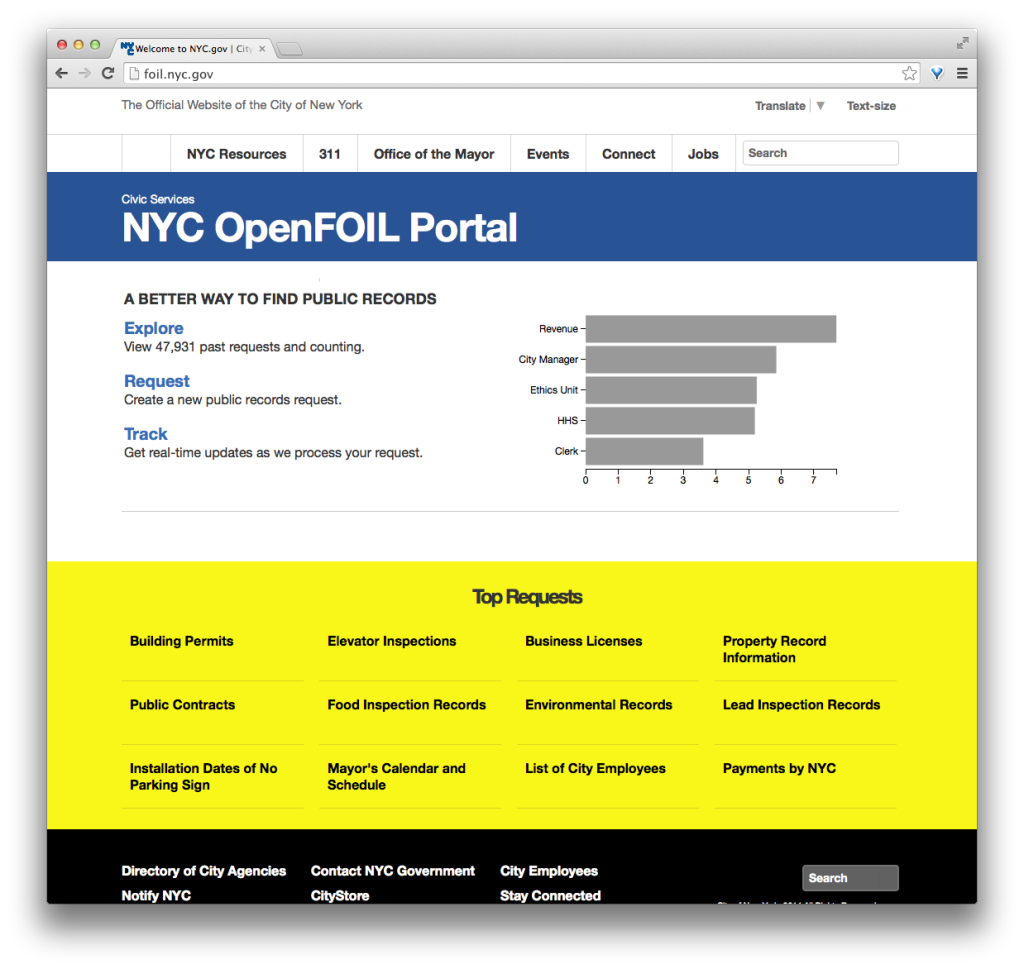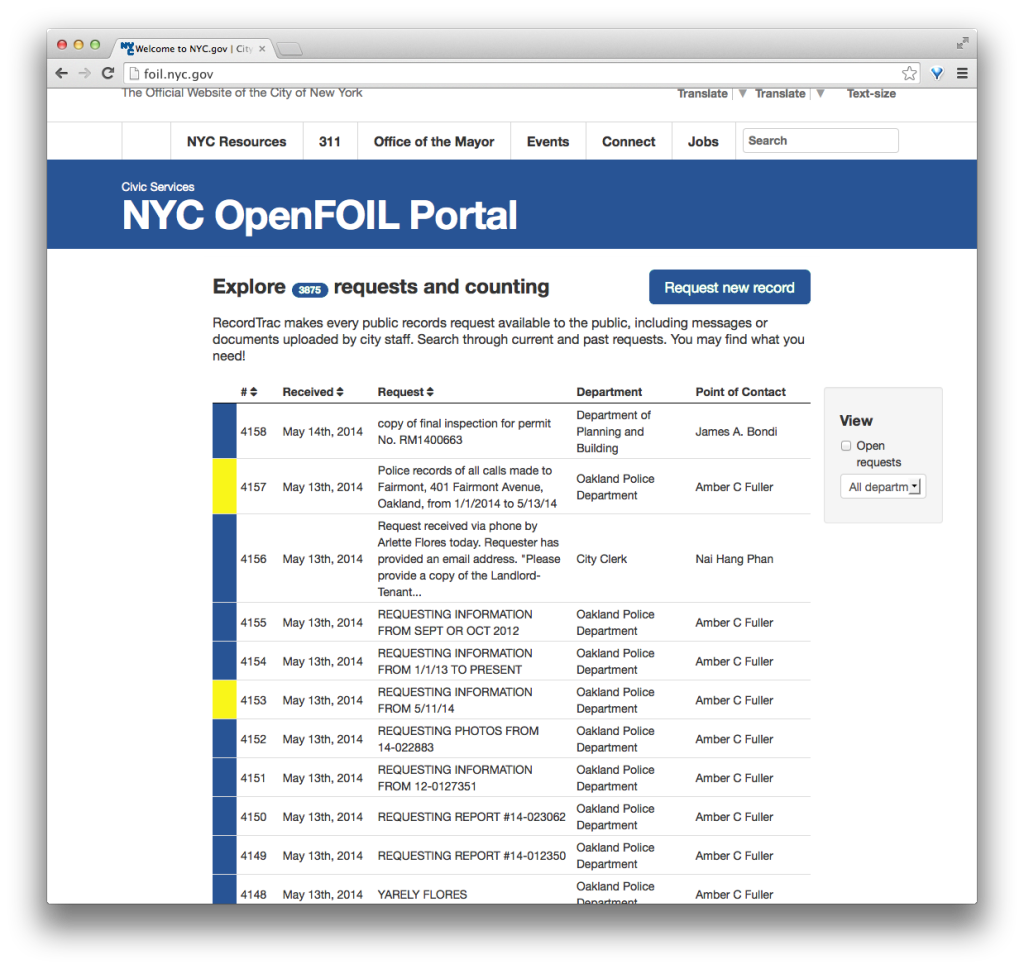
New York City’s creaky and opaque Freedom of Information Law process will soon get a long-overdue transparency and efficiency makeover. Council members Ben Kallos and James Vacca, on behalf of Manhattan Borough President Gale Brewer, introduced an OpenFOIL bill, Intro 328-2014, at today’s City Council Meeting. OpenFOIL builds on recommendations made by Public Advocate Bill de Blasio’s 2013 report, “Breaking Through Bureaucracy.” De Blasio’s report found that 10% of FOIL requests – 5,000 a year – are ignored, and 40% of city agencies do not even put FOIL contact information on their websites. Additionally, the system is not fair: city officials have told Reinvent Albany that their responses to FOIL requests often depend on who is asking, and what they are asking about.
The OpenFOIL bill is strongly supported by the NYC Transparency Working Group and other advocacy groups, and is expected to become law this year.
This bill will create a more transparent and responsive online system, and will do that while saving NYC an estimated $10 million a year. OpenFOIL is based on the best aspects of what the federal government and cities like Oakland and Chicago are doing with their online FOIL processing sites. The bill creates a transparent, centralized process, like 311 did for the city’s service and information requests, and the NYC Open Data Law did for agency data.

OpenFOIL does three thing to make FOIL work better for New Yorkers, it:
- Centralizes requests and responses and tracks the government’s responses in public view.
- Automates FOIL request processing and gives agencies internal redaction and tracking features.
- Opens FOIL so that the content of all requests and the government response are posted online.
OpenFOIL also contains an important open data provision we call “One Strike and You’re In.” Under the bill, once a data set is used to disclose records in response to a FOIL request, that data set will be included in the city’s open data portal.
Importantly, OpenFOIL only changes how NYC processes requests, it does not add to the existing state Freedom of Information Law or modify any privacy protections in that law. The bill does not disclose the names of people and organizations submitting FOIL requests, which is a common practice elsewhere, and done by Chicago and more locally by the Port Authority.
